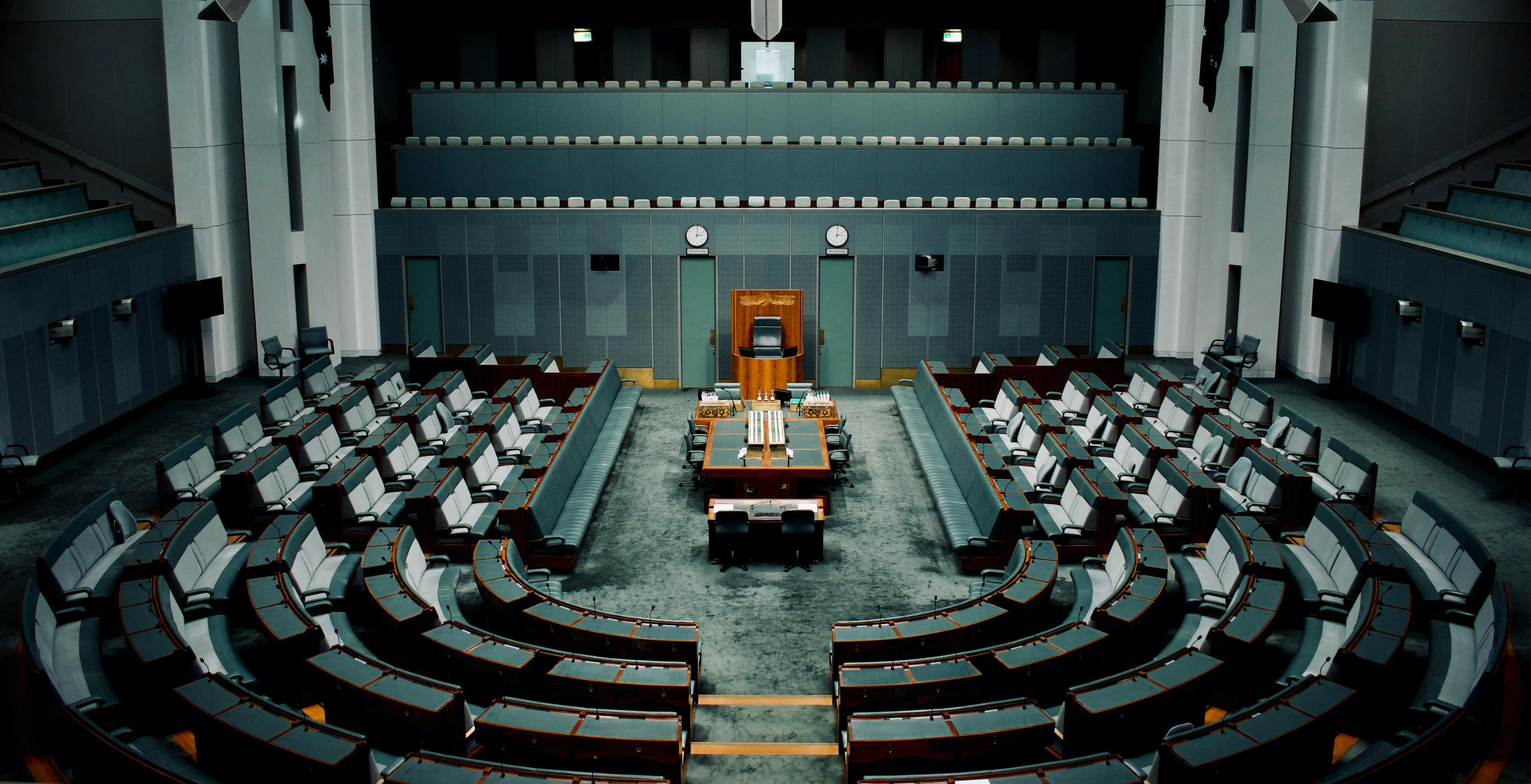
Electoral system in Luxembourg
In this article, we observe the electoral system of Luxembourg. Shedding light on the types of elections held, the underlying reasons for these electoral exercises, and eligibility criteria for both candidates and voters.
Luxembourg has a vibrant political scene characterized by a well-organized electoral system. In essence, Luxembourg combines elements of a constitutional monarchy and a parliamentary democracy. This means that while there is a monarch as the symbolic leader, the actual decision-making power lies with the elected officials in parliament who represent the wishes of the people.
What elections are there in Luxembourg?
Luxembourg's political system is based on the principles of a democratic republic in which the various branches of government operate separately but in concert. In particular, there are clear distinctions between the roles of the legislative, executive and judicial branches.
However, there is some overlap, particularly between the executive and legislative branches, which allows them to work closely together for a better future.
There are three different levels at which people can vote to support democracy and make their choices. Local, national and European elections offer the opportunity to influence the course of politics.
Local elections — Municipal democracy
National elections — Chambre des Députés
European elections — EU Parliament
The next elections in Luxembourg will be held according to the schedule made at different levels.
Roles in the elections
Understanding the electoral system is the first step to participating in the elections. Here, we break down the different aspects of the electoral system in Luxembourg.
At the local level
On the national stage
It's important to note that the Grand Duke himself is not eligible for election, as Luxembourg operates as a constitutional monarchy where the monarch's role is hereditary.
At the local level, the criteria for eligibility to vote in municipal elections in Luxembourg are as follows:
- Individuals must be at least 18 years old on the day of the elections.
- They must possess full civil rights and not have been deprived of the right to vote.
- Grand Duchy of Luxembourg's residence is a prerequisite.
- Citizens of another European Union member state must be domiciled in the Grand Duchy. They also must be residing there at the time of their application for registration on the electoral list.
- Other foreign nationals must also be domiciled in the Grand Duchy. Additionally, they must hold a valid residence permit or stay title.
On the national stage, eligibility to vote in legislative elections in Luxembourg requires:
- Luxembourg citizenship.
- Attainment of 18 years of age on or before the day of the elections.
- Enjoyment of full civil and political rights.
- Domicile in the Grand Duchy of Luxembourg. However, Luxembourg citizens residing abroad are allowed to participate in legislative elections through postal voting.
- These precise criteria ensure that those who exercise their right to vote meet the necessary legal and residential qualifications, reinforcing the democratic principles at the heart of Luxembourg's electoral system.
However, Luxembourg nationals domiciled abroad can vote in parliamentary elections by postal ballot.
General elections in 2023
The political landscape of Luxembourg is abuzz with anticipation as the nation heads toward a pivotal event in its democratic calendar, the legislative elections of 2023. Earlier this year, the 2023 Luxembourg communal elections marked a crucial step in local governance.
However, the spotlight now shifts to the upcoming legislative elections, scheduled for October 8. These elections hold immense significance in Luxembourg's political journey, as they will determine the nation's course for the years to come.
In the legislative elections of 2023, the Luxembourgish electorate will not only select its 60 deputies for the Chamber of Deputies but will also play a pivotal role in shaping the composition of the next government.
Why is it important?
What is its impact?
The choices made by voters will have far-reaching consequences, impacting areas such as
As the nation prepares to cast its ballots, the legislative elections of 2023 stand as a cornerstone of Luxembourg's democratic tradition, where the power of the people holds the key to charting the course of the Grand Duchy's future.
Other upcoming elections
The next elections on Luxembourg's political horizon are the 2024 European Parliament elections. These multinational elections serve to elect the country's representatives to the European Parliament for fixed five-year terms. Luxembourg, as a member state of the European Union, holds the privilege of sending six delegates to the European Parliament.
The upcoming 2024 European Parliament election is scheduled to take place from June 6 to 9, 2024.
This electoral event marks a significant milestone as the first European Parliament election following the United Kingdom's departure from the EU. Luxembourg's participation in these elections underscores its commitment to shaping European policies and representation, making it a crucial event in the Grand Duchy's political calenda.
How to participate and vote in the elections
In Luxembourg, your eligibility as a voter is automatically established through registration on the electoral rolls, a process overseen by the municipal administration, often initiated through the declaration of a newborn.
When it comes to casting your vote, you have two options: voting in person at polling stations or voting by correspondence.
In Luxembourg, voting is compulsory since the results of Luxembourg elections should depend on all persons eligible to vote. Voters unable to participate must provide valid reasons with necessary justifications to the territorially competent State Prosecutor. Those residing in a different commune at the time of the election or being over 75 years old are automatically excused from voting.
Voting in Person at Polling Stations


Voting by Correspondence




Failure to vote without valid justification results in fines.
Political parties in Luxembourg
Understanding the affiliation of candidates with political parties is crucial when casting votes for deputies, as it provides insight into the values and ideals they uphold. Each political party in Luxembourg represents a distinct set of principles and positions along the political spectrum, ranging from left to right.
Familiarity with these parties and their orientations is essential for making informed and aligned voting choices that resonate with individual beliefs and interests. Here, we offer a brief overview of some of Luxembourg's most prominent political parties and their orientations:








Beyond the parties that are familiar to voters and even participate in the state process, political life does not stand still. New political factions are emerging in Luxembourg, offering voters fresh ideas and a new perspective.
Political Guide

Frequently Asked Questions (FAQ)
What type of electoral system does Luxembourg use?
Luxembourg employs a proportional representation electoral system for its legislative elections. This system allows political parties to secure seats in the Chamber of Deputies in proportion to the percentage of the popular vote they receive. It is a variant of the Hagenbach-Bischoff system, which aims to ensure that the distribution of seats closely mirrors the electorate's preferences, promoting a diverse and representative legislature.
What is at stake in the 2023 legislative elections in Luxembourg?
The 2023 legislative elections in Luxembourg hold immense significance as they will determine the composition of the Chamber of Deputies and, consequently, the next government. Key issues at stake include shaping the nation's economic policies, social welfare programs, environmental initiatives, and its role within the European Union. Voters' choices will influence Luxembourg's direction on both domestic and international fronts, making these elections a crucial event in the country's political calendar.
How often are legislative elections held in Luxembourg?
Legislative elections in Luxembourg are held every five years. This regular interval ensures that citizens can periodically evaluate and select their representatives in the Chamber of Deputies, providing stability to the country's democratic process.
Who is eligible to vote in Luxembourg for the legislative elections?
To participate in legislative elections in Luxembourg, individuals must meet specific criteria:
● They must be at least 18 years old on the day of the elections.
● They must enjoy full civil and political rights.
● They should be domiciled in the Grand Duchy of Luxembourg, except for Luxembourg citizens residing abroad who can vote by postal ballot.
Source: gouvernement.lu, gouvernement.lu, fr.wikipedia.org, www.vdl.lu, fr.wikipedia.org, www.virgule.lu, luxembourg/286735.html, fr.wikipedia.org, en.wikipedia.org, en.wikipedia.org, guichet.public.lu, legislatives/inscription-listes-electorales-legislatives.html
We took photos from these sources: Aditya Joshi for Unsplash